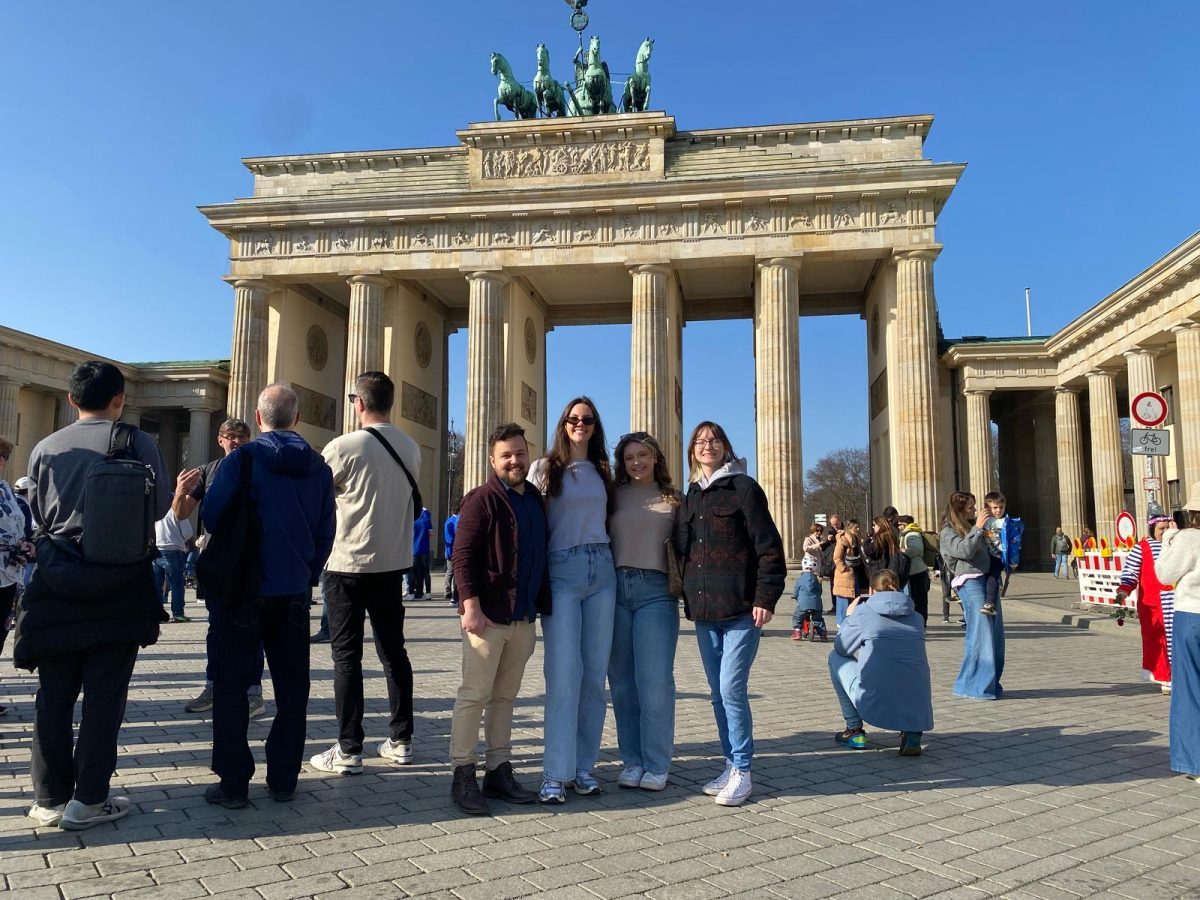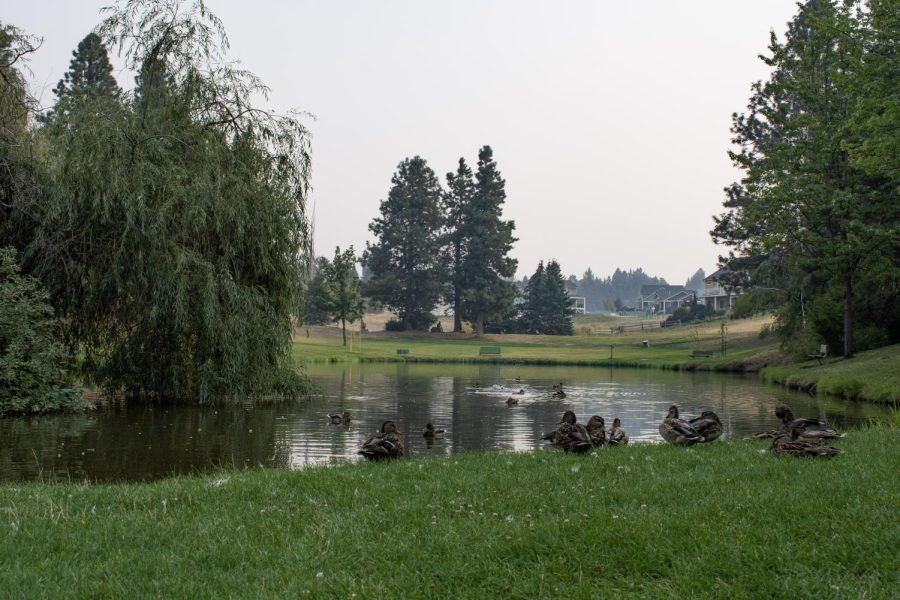Editor’s note: Lauren Rendahl also works for the Daily Evergreen. This is not a factor in the story’s content
Every year, the Edward R. Murrow College of Communication sends four students abroad to gain hands-on journalism experience. This year, the students’ assignment was retrospective and in recognition of the groundbreaking journalistic work of the college’s namesake.
April 11 will mark the 80th anniversary of the liberation of the Buchenwald concentration camp and April 15 marks the 80th anniversary of Edward R. Murrow’s CBS broadcast, one of the first to show American audiences the true horrors of the Holocaust. Murrow students arrived on March 10 to do some preliminary reporting on the anniversary and Murrow’s influence.
“We’re doing a parallel story. We’re here 80 years later as Murrow College students, reporting on how important factual information is and how important unbiased media is, how important combating misinformation is,” said Lauren Rendahl, senior multimedia journalism major. “Immersing yourself in the environment that you’re reporting on is so important because how can you begin to describe to a reader what it looks like or feels like if you haven’t been there yourself?”
The Backpack Journalism Program students immersed themselves in the history of Buchenwald, interviewing historians, academics and residents of the adjacent town of Weimar. They stayed in dormitories on the grounds of the memorial and shared meals with other student groups and staff.
“Some areas of Germany, their politicians can make these student trips to concentration camps mandatory and in others, it’s up to the teacher,” said Brooke Bovenkamp, senior broadcast news major.
The student groups at the memorial were not required to visit, but their teachers elected to go.
“After talking to the teachers, especially with far-right extreme parties, a lot of the people visiting were very aware of the parallels,” Bovenkamp said.
Students also had the opportunity to explore larger urban centers in Germany, including Berlin and Leipzig, contextualizing their research and reporting of history with present interpretations and political contexts.
“International relations and things like conflicts all around the world are very interesting to me and communicating those issues and seeing how we can draw parallels between things going on in other places and here at home too,” Bovenkamp said.
In the days before their visit to Buchenwald, the students sat down with German journalists to gain an understanding of their day-to-day work.
“Looking at the parallels between journalism in the U.S. and journalism in Germany, there are actually weirdly a lot more similarities than you’d think,” Bovenkamp said.
Both students emphasized the importance of unbiased and factual reporting, a practice they say is threatened by political movements domestically and internationally.
“At Buchenwald, the staff talked a lot about how political parties like that are dangerous, especially for federally funded memorials like that,” Bovenkamp said.
The recent German parliamentary election saw a massive increase in support for the Alternative for Germany, or AfD, a far-right, populist and anti-EU party. It is the first extreme conservative political movement to gain such popularity in Germany since the 1940s.
“With the AfD and the far-right party, there’s a lot of Holocaust denialism,” Rendahl said. “A lot of the people in Germany aren’t responsible for that right now, but maybe their grandparents were and their ancestors were and it’s a part of their history that I don’t think anyone should forget.”
The modern resurgence of extreme conservatism has manifested in media suppression, a pattern that concerns both Bovenkamp and Rendahl.
“It’s scary to be a journalist in this time,” Bovenkamp said. “I think for me, it’s a driving factor now more than ever.”
Despite the challenges of pursuing a career in journalism, they are both more motivated than ever to enter the field.
“Silencing journalists and barring the AP (from the White House) and everything like that—it makes you want to do that truthful, honest reporting even more,” Rendahl said. “It really offers a voice for democracy.”









